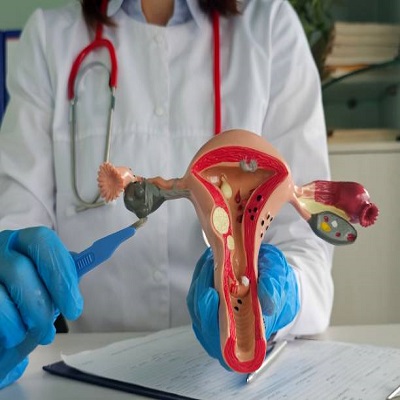Mebendazole: A Trusted Anthelmintic for Intestinal Worm Infections
Mebendazole: A Trusted Anthelmintic for Intestinal Worm Infections

Intestinal worm infections are among the most common health issues affecting people in both developing and developed countries. These infections, caused by parasitic worms such as pinworms, roundworms, hookworms, and whipworms, can lead to malnutrition, anemia, digestive problems, and impaired physical and cognitive development—especially in children. Fortunately, modern medicine offers effective and safe treatments for these infections, and Mebendazole Over The Counter stands out as one of the most trusted options.
This article explores everything you need to know about Mebendazole—its uses, how it works, dosage guidelines, safety, side effects, and why it continues to be a leading choice for the treatment of intestinal worm infections.
What Is Mebendazole?
Mebendazole is an anthelmintic medication, which means it is specifically designed to treat parasitic worm infections in the human body. First introduced in the 1970s, mebendazole is included on the World Health Organization’s List of Essential Medicines and is considered a vital drug for global public health.
It is commonly used to treat infections caused by:
-
Pinworms (Enterobius vermicularis)
-
Roundworms (Ascaris lumbricoides)
-
Hookworms (Ancylostoma duodenale and Necator americanus)
-
Whipworms (Trichuris trichiura)
-
Other intestinal helminths
How Mebendazole Works
Mebendazole works by disrupting the energy metabolism of the worms. Specifically, it blocks the parasite’s ability to absorb glucose, which is essential for their survival. Without glucose, the worms lose energy, become immobilized, and eventually die. The dead worms are then expelled naturally through the intestines.
Unlike some other medications, mebendazole works within the gastrointestinal tract and is poorly absorbed into the bloodstream, which helps minimize systemic side effects.
Conditions Treated by Mebendazole
Mebendazole is effective against a broad spectrum of intestinal helminths. The most common conditions treated include:
1. Pinworm Infection
Pinworms are the most common worm infection in children. They cause intense itching around the anus, especially at night. A single dose of mebendazole is usually effective, followed by a second dose two weeks later to prevent reinfection.
2. Ascariasis (Roundworm Infection)
This infection occurs when roundworm eggs are ingested from contaminated food or water. Mebendazole effectively kills the worms and reduces symptoms such as abdominal pain, bloating, and nausea.
3. Hookworm Infection
Hookworms attach to the intestinal lining and suck blood, which can cause anemia and fatigue. Mebendazole kills the worms and helps reverse blood loss-related symptoms.
4. Trichuriasis (Whipworm Infection)
Whipworms can cause diarrhea, rectal bleeding, and growth delays in children. Mebendazole helps eliminate these parasites effectively with a short treatment course.
Dosage and Administration
Mebendazole is available in tablet, chewable tablet, and suspension (liquid) forms. The dosage depends on the type of worm infection, the patient’s age, and the severity of the infection.
Common Dosage Guidelines:
-
Pinworms (Enterobiasis):
-
Adults and children over 2 years: 100 mg once
-
Repeat dose after 2 weeks to prevent reinfection
-
-
Ascariasis, Hookworms, Whipworms, Mixed infections:
-
Adults and children over 2 years: 100 mg twice daily for 3 days
-
Note: For children under 2 years of age, consult a pediatrician before use. Tablets can be chewed or crushed and taken with a small amount of food.
Advantages of Mebendazole
Mebendazole is widely used due to several distinct advantages:
-
Broad-spectrum action against multiple types of intestinal worms
-
Short treatment duration for most infections
-
Well-tolerated, with minimal side effects
-
Low systemic absorption, reducing the risk of toxicity
-
Suitable for mass deworming programs in schools and communities
-
Affordable and widely available, especially in low-income countries
Side Effects of Mebendazole
Mebendazole is generally safe and well-tolerated. However, as with any medication, some people may experience side effects.
Common Side Effects:
-
Abdominal pain
-
Gas
-
Diarrhea
-
Nausea
Rare Side Effects:
-
Skin rash or itching
-
Dizziness
-
Fever
-
Low white blood cell count (with prolonged high-dose use)
Serious side effects are rare and usually occur with long-term or high-dose treatments. Always follow prescribed dosages to minimize risks.
Safety and Precautions
Before starting Mebendazole, certain precautions should be observed:
-
Pregnancy: Mebendazole should generally be avoided in the first trimester unless the benefits outweigh the risks. It should only be used under medical supervision during pregnancy.
-
Breastfeeding: Considered safe; however, consult a doctor before use.
-
Liver Disease: Prolonged use may require monitoring liver function.
-
Allergies: Inform your doctor about any known allergies to medications or dyes.
Deworming in Children and Public Health
In many countries, routine deworming programs are conducted using mebendazole in schools to reduce the prevalence of parasitic infections among children. These mass drug administration (MDA) efforts have shown remarkable success in:
-
Reducing worm-related illnesses
-
Improving growth and nutrition
-
Enhancing school attendance and cognitive development
The World Health Organization recommends regular deworming with mebendazole in areas with high worm burden, especially in children aged 1–14 years.
How Long Does Mebendazole Take to Work?
Mebendazole begins to work within hours of ingestion, but it may take several days for the dead worms to be fully expelled and for symptoms to subside. In cases of heavy infestation, improvement may take a bit longer, and a follow-up dose may be required after two weeks.
Preventing Reinfection
Mebendazole treats the infection, but preventing reinfection is equally important. Steps to prevent recurrence include:
-
Maintaining proper hand hygiene, especially before eating and after using the toilet
-
Washing fruits and vegetables thoroughly
-
Drinking safe, clean water
-
Ensuring proper sanitation and waste disposal
-
Washing bed linens and clothes regularly in households where pinworm is present
Conclusion: A Proven Ally Against Worm Infections
Mebendazole has proven itself to be a safe, effective, and affordable treatment for a wide variety of intestinal worm infections. Whether used in individual treatment or mass deworming efforts, it continues to play a crucial role in reducing the global burden of parasitic diseases.
Its ease of use, minimal side effects, and broad-spectrum efficacy make mebendazole a go-to medication for healthcare providers worldwide. If you or a family member has been prescribed mebendazole, you can feel confident in its reliability and effectiveness when taken as directed.







